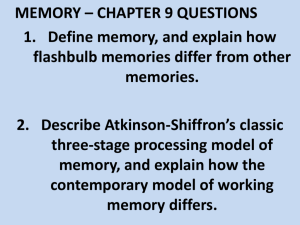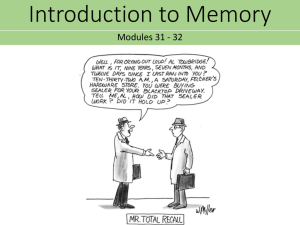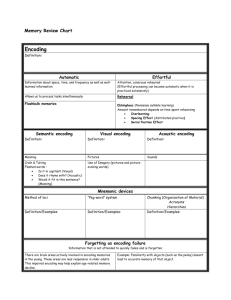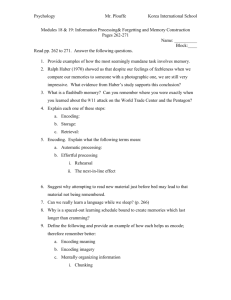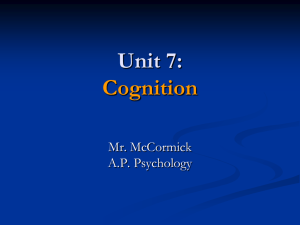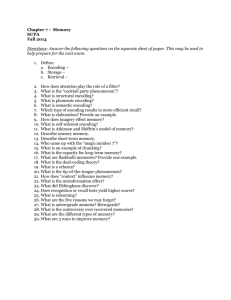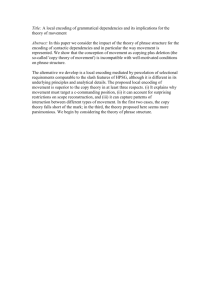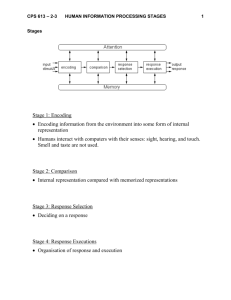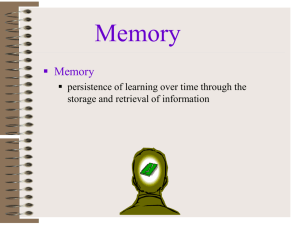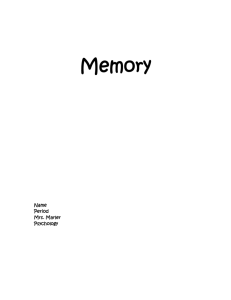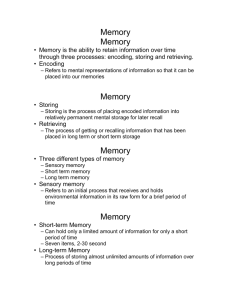Memory Outline 1 - Riverside Local Schools
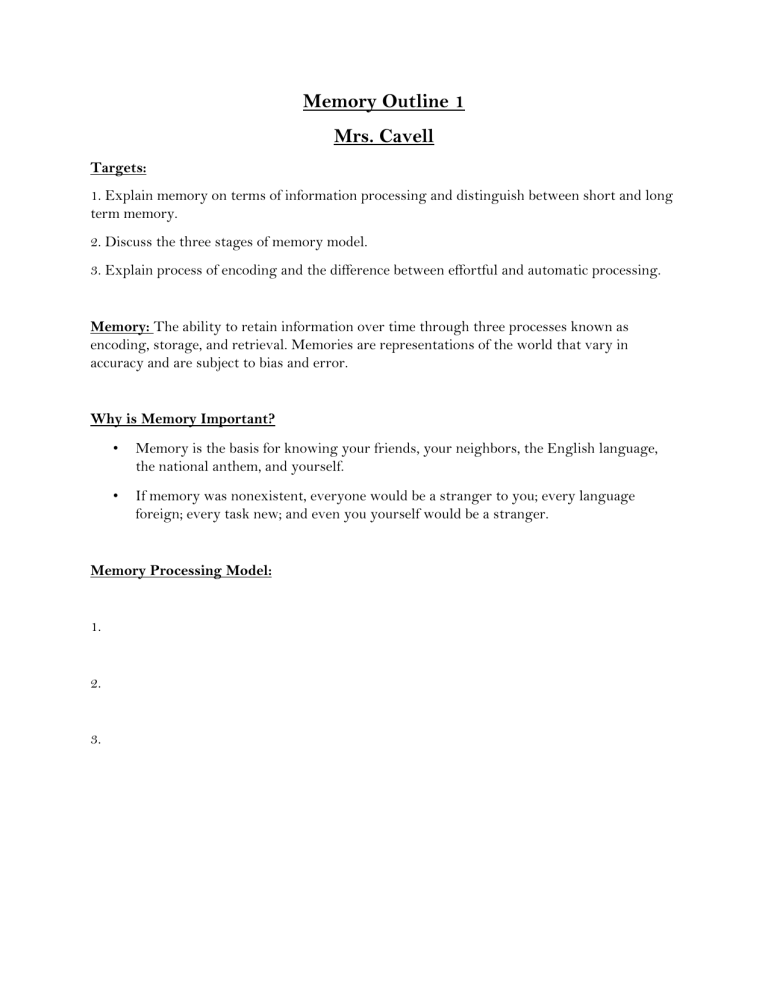
Memory Outline 1
Mrs. Cavell
2.
3.
Targets:
1. Explain memory on terms of information processing and distinguish between short and long term memory.
2. Discuss the three stages of memory model.
3. Explain process of encoding and the difference between effortful and automatic processing.
Memory: The ability to retain information over time through three processes known as encoding, storage, and retrieval. Memories are representations of the world that vary in accuracy and are subject to bias and error.
Why is Memory Important?
• Memory is the basis for knowing your friends, your neighbors, the English language, the national anthem, and yourself.
• If memory was nonexistent, everyone would be a stranger to you; every language foreign; every task new; and even you yourself would be a stranger.
Memory Processing Model:
1.
3 Memory Types:
1.
Sensory:
2.
Short-Term/Working:
3.
Long Term:
Modifications to the Three-Stage Model:
1.
Some information skips the first two stages and enters long-term memory automatically.
2.
Since we cannot focus on all the sensory information received, we select information that is important to us and actively process it into our working memory .
Encoding: Getting Information In:
1.
Some information (route to school) is automatically processed.
2.
However, new or unusual information (friend’s new cell-phone number) requires attention and effort.
Automatic Processing:
Effortful Processing:
